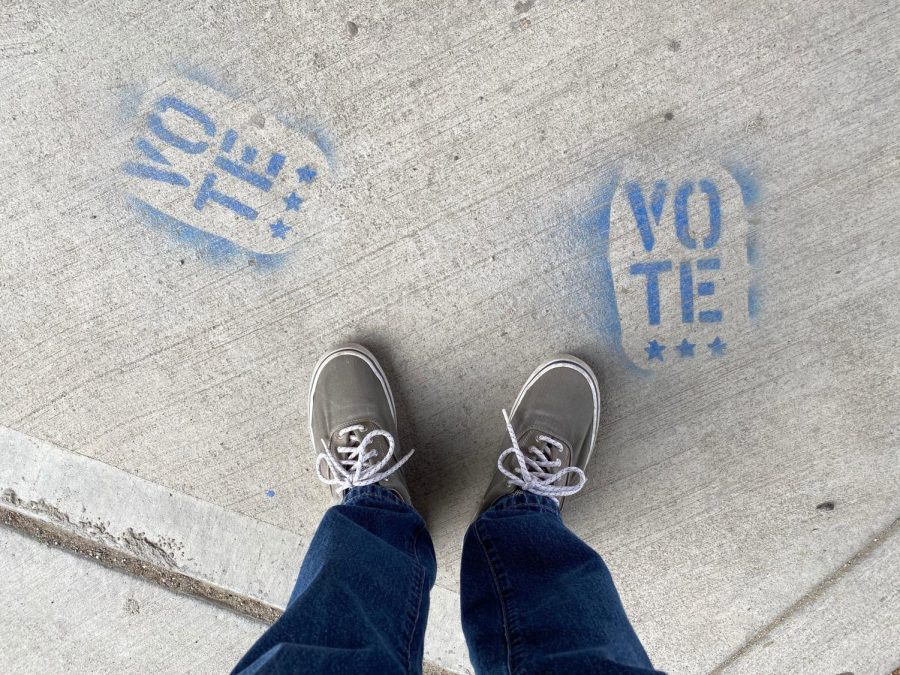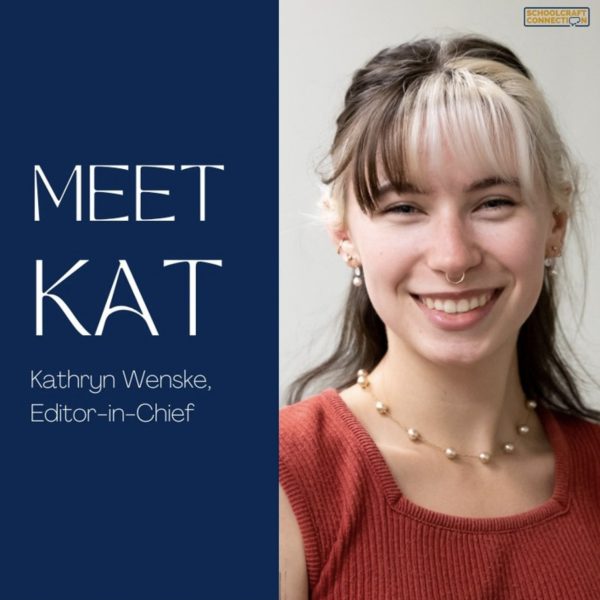Utilize your voice
A guide to voting in the upcoming election
October 18, 2022
The Nov. 8 midterm election for the State of Michigan is less than a month away, nevertheless some Michiganders may not know how to use or underestimate their voice as a voter. Some, if not many this year, are first-time voters and have never had the experience of voting.
That being said, Elections are how citizens communicate their opinions to their country or state, as well as how our society handles civil disputes. Voting can be a very empowering experience for people as their vote constitutes how their government and systems run.
As President of the Business Club Eduardo Perez states, voting for him means “improving society as a whole and improving infrastructure like roads and to make them more efficient so we don’t run into traffic issues.”
Someone who reflects these values in voting and is an excellent source for information regarding this civic duty is Schoolcraft alumnus Michael Siegrist, who serves as a Canton Township clerk and Board of Trustees member.
“I love individual liberty, I love civil rights, I love popular sovereignty and the idea that government derives its legitimacy from me. My opinions, what works for me and elections are how you determine what people want,” says Siegrist. “It’s how we elect people to represent ourselves, like legitimate referendums, like how we want to live as people.”
Methods of voting
Accessibility is vital for voters and although there is still room for improvement on outreach, the State of Michigan offers several different avenues of voting. Absentee ballots have become very popular due to the COVID-19 pandemic and one of the primary avenues people have submitted their ballots. Clerk’s offices will send out absentee ballots for those who have applied a month or over in advance to the in-person voting day. Voters then have the option to mail back or drop off their ballot at their clerk’s office.
“Voting at home is fun. It’s easy and you get the opportunity to research the candidates a little bit better. When voters are given a choice in voting, the process changes. So I think people will be voting absentees now,” says Siegrist.
There is also the traditional style of voting, which is doing so in-person. When a citizen is registered to vote, they should have received a letter from their clerk’s office with a voting certificate and address to where they will be going to vote (polling place). There is only one day citizens can vote in-person, which may conflict with schedules. Many jobs allow paid time off to vote, but this is not guaranteed. The hallways of polling places are typically lined with directions on where to go to avoid confusion. There will be tables for voters to pick up their ballots, as well as cubicles provided for privacy purposes when filling the form out. When voters are done, they may place their ballot in a drop-box on sight.
“There are many other avenues for political participation that are very important. Seeking office, working on campaigns, volunteering for interest groups and our community groups are all great examples of civic engagement that I encourage people to undertake,” said Schoolcraft professor of Political Sciences, Alec Thomson. “But I would not view them as a substitute for voting. Do both – vote and become civically engaged in the causes and community that you care about.
What is on Nov 8. Election ballot?
This election is specific to electing State Governor: the candidates include current Governor Gretchen Whitmer (Democratic), Garlin D. Gilchrist I (Democratic), Tudor M. Dixon (Republican), Shane Hernandaz (Republican), Mary Buzuma (Libertarian), Brian Ellison (Libertarian), Donna Brandenburg (U.S. Taxpayers), Mellissa Carone (U.S. Taxpayers), Kevin Hogan (Green), Destiny Clayton (Green), Daryl M. Simpson (Natural Law) and Doug Dern (Natural Law). Voters will elect Secretary of State; Jocelyn Benson (Democratic), Kristina Elaine Karamo (Republican), Gregory Scott Stempfle (Libertarian), Christine C Schwartz (U.S. Taxpayers) and Larry James Hutchinson Jr. (Green). Candidates for Attorney General include Dana Nessel (Democratic), Matthew DePerno (Republican), Joseph W. McHugh Jr. (Libertarian) and Gerald T. Van Sickle (U.S. Taxpayers). Candidates for Representatives in Congress include Rashida Tlaib (Democratic), Steven Elliott (Republican) and Gary Walkowicz (Working Class). Sylvia Santana (Democratic), Harry T. Sawicki (Republican) and Larry Darnell Betts (Working Class) are running for State Senator. Candidates running for Representative in the State Legislature are Erin Byrnes (Democratic) and Steven J. Mackie (Republican).
There will also be sections for the Members of The State Board of Education and internal elections for local universities, board members for schools and county positions, along with elections for justices and judges that will be specific to districts. Finally, ballots include a proposal section that voters can choose to approve or disprove of a state action; which can be found and researched on the Michigan Voter Information Center website.
“On the ballot in November there’s a proposal to allow for early in-person voting: which would be the first time in Michigan that’s ever happened before. Nine days before election day. So that would drastically change what voting looks like in future elections,” said Siegrist.
Voters do have the freedom of not needing to vote on every section in the ballot. If a voter is only interested in the State Governor then they can just fill that section out. There is also the option to vote straight ticket for a single party.
Avoiding misinformation
Voters are strongly urged to do research on candidates for elections, but yielding results may prove to be difficult and confusing. The Canton’s Clerk’s Office themselves are preparing for the election by creating new manuals for the new inspectors and they now have electronic books for them to hopefully speed up the process and have also proactively been posting on their social media promoting information on the election for voters.
“What’s hard is that because we consume national and international news, people [can] get confused very easily; they conflate our processes with other states’ processes,” says Siegrist, “One of the challenges is [due to] the loss of the local media, local newspaper, is that we are seeing there’s less scrutiny at a local level and so individuals who maybe have problematic opinions or just opinions or positions people might care about, [the public] never learn[s] about. There’s no in-depth probing or reporting at that level.”
However, there are outlets like local clerk’s offices, Department of State and State of Michigan websites that do provide accurate information on voting, registration, upcoming elections and anything relevant to that topic. Voters can also visit candidates’ social media: not for accurate election information necessarily but to view what types of people they are and what type of things they are posting that will aid in making informed decisions when voting in the polls (or absentee).
For more information regarding the election and registration to vote online, go to mvic.sos.state.mi.us. If interested in detailed information regarding candidates and ballots, go to www.vote411.org/michigan.










